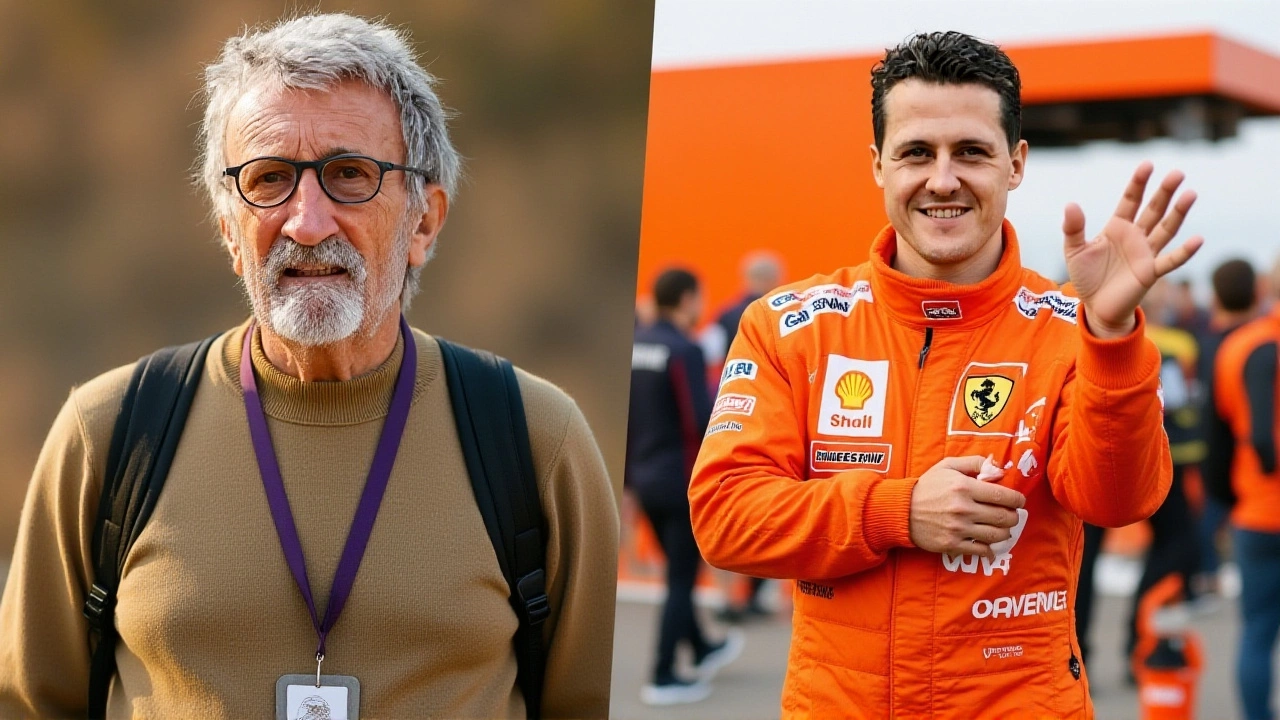Michael Schumacher – Formula 1 Legend, Records, and Legacy
When you hear Michael Schumacher, the German racing driver who clinched seven World Championships and set countless speed records, you instantly picture high‑speed drama on the track. Formula 1, the premier open‑wheel motorsport series was his playground, and his name became synonymous with dominance. He started with Jordan, a mid‑field team that gave him his first taste of Grand Prix competition before moving to Ferrari, the historic Italian constructor where he built most of his legend. Later, his role at Mercedes‑AMG Petronas, a modern powerhouse that benefited from his technical insight showed how a driver can influence car development long after retirement. Schumacher’s career illustrates three core ideas: skill drives results, technology amplifies talent, and a driver’s brand can outlive the sport itself. For example, his seven titles encompass four consecutive wins with Ferrari, a streak that reshaped team strategy worldwide. The Grand Prix circuits he conquered—like Spa‑Francorchamps, Monza, and Suzuka—still test drivers on the same blend of speed and precision that defined his era. By linking personal mastery, engineering excellence, and global fan appeal, Michael Schumacher created a blueprint that current champions still follow.
Why Michael Schumacher Still Matters
Today, analysts compare emerging stars to Schumacher because his approach set standards for preparation, fitness, and data‑driven racing. Driver fitness, the rigorous physical regime required to endure G‑forces and maintain focus became a non‑negotiable part of every top team’s program after his era. His partnership with engineers highlighted that telemetry, the real‑time data stream from the car to the pit is as crucial as the driver’s instinct, turning races into data battles. The legacy also lives in how sponsors view the sport; Schumacher’s marketability turned his helmet design into a global brand, proving that a driver’s image can drive revenue as much as performance on the track. Moreover, his involvement in safety campaigns after his own injuries sparked rules that now protect drivers, showing the sport can evolve through personal experience. All these facets—physical conditioning, technological integration, commercial impact, and safety advocacy—form a network of relationships that keep his name relevant in every corner of modern motorsport.
Below, you’ll find a curated collection of articles that dive deeper into these themes: race‑by‑race analyses, technical breakdowns of the cars he drove, comparisons with today’s champions, and stories about the teams that built his success. Whether you’re a casual fan curious about why his helmet still pops up in memes or a budding racer looking for lessons on discipline and data, the posts ahead offer practical insights and fresh perspectives on the man who turned racing into an art form.
Eddie Jordan, F1 Visionary and Broadcaster, Dies at 76 in Cape Town
Eddie Jordan, founder of Jordan Grand Prix and early champion of Michael Schumacher, dies at 76 in Cape Town. Tributes pour in as his legacy shapes modern F1.
Read more